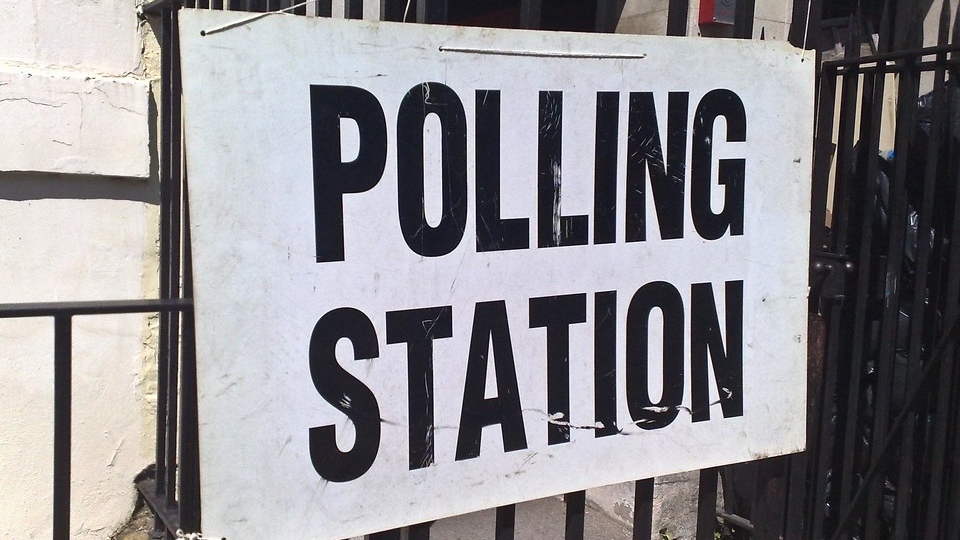What happens during today's general election
Reporter: George Lythgoe, Local Democracy Reporter
Date published: 04 July 2024

Prime Minister Rishi Sunak called a general election, and it takes place today
The Prime Minister Rishi Sunak decided to call for a general election, and today (Thursday) is the day!
A general election is where the PM asks for the permission of the monarch, King Charles III, to dissolve Parliament.
Dissolving parliament usually takes several days to take place in which time current business in the House of Commons will have to be wrapped up.
Polling day, where the general public cast their votes on who they want to be their next MP, usually takes place 25 working days on from when the election is called.
During this recent period we've seen the political parties heading out campaigning in a bid to convince voters to put a cross in the box next to their name come polling day.
This has seen manifesto launches, leafleting, televised debates and public appearances.
Every household has seen their letterboxes and TV screens dominated by politicians vying for their vote in their local areas – which are called constituencies in politics.
What happens on polling day (today, July 4)?
Voting can be done in person at polling stations, or ahead of polling day, by post, or by proxy.
Polling stations will open at 7am and close at 10pm on July 4.
Each person gets what is called a ballot paper with the name and political party of each candidate that wants to be that area’s MP.
Each person will put a cross in the box of the person they want to be presented by in the House of Commons.
Once the polls close at 10pm the votes will be taken to counting halls in every constituency where the number of votes each election candidate gets is counted.
Whichever candidate gets the most votes wins that seat for their political party. This is what is called the first past the post system.
How do we know who wins?
It is heavily predicted that Labour will win the next general election, but to do that they will need to win 326 seats in parliament.
This is half the number of seats, plus one, available in the House of Commons (650 in total).
This is the number needed to command what is called a majority.
If the Labour Party manages to get this, as is predicted, the King will then invite them to form a government.
The party leader will then become the Prime Minister.
What happens if no-one gets a majority?
When no individual party wins enough seats to get a majority, this is what is called a hung parliament.
Usually, when this happens the political party with the most seats forms what is called a coalition with a smaller party so they have enough seats to control the House of Commons.
The last time this happened was in 2010 when the Conservatives formed a coalition with the Liberal Democrats.
This deal is usually formed with agreements on certain policies on both sides.
If a coalition cannot be agreed, then the party with the largest number of seats can form what is called a minority government.
This means they would have to form agreements with a number of political parties in Parliament in order to support them as they go along.
However, a minority government runs a greater risk of being outvoted and not having control of the House of Commons, which means they cannot get their policies through with overall agreement.
At the moment the Conservatives have 344 seats in the House of Commons, meaning that they can pass through bills without requiring support from other parties in the house.
How often do general elections happen?
A general election has to happen at least every five years by law, unless the government calls one earlier.
The last general election was held on December 12, 2019.
The latest the next general election could take place would have been January 2025 – but Mr Sunak called it earlier.
Here is a list of every current MP in Greater Manchester listed by constituency:
Altrincham and Sale West: Sir Graham Brady (Con)
Ashton-under-Lyne: Angela Rayner (Lab)
Blackley and Broughton Graham Stringer (Lab)
Bolton North East: Mark Logan (Con)
Bolton South East: Yasmin Qureshi (Lab)
Bolton West: Chris Green (Con)
Bury North: James Daly (Con)
Bury South: Christian Wakeford (Lab)
Cheadle: Mary Robinson (Con)
Denton and Reddish: Andrew Gwynne (Lab)
Hazel Grove: William Wragg (Ind)
Heywood and Middleton: Chris Clarkson (Con)
Leigh: James Grundy (Con)
Makerfield: Yvonne Fovargue (Lab)
Manchester, Central: Lucy Powell (Labour Co-op)
Manchester, Gorton: Afzal Khan (Lab)
Manchester, Withington: Jeff Smith (Lab)
Oldham East and Saddleworth: Debbie Abrahams (Lab)
Oldham West and Royton: Jim McMahon (Labour Co-op)
Rochdale: George Galloway (Workers Party)
Salford and Eccles: Rebecca Long-Bailey (Lab)
Stalybridge and Hyde: Jonathan Reynolds (Labour Co-op)
Stockport: Nav Mishra (Lab)
Stretford and Urmston: Andrew Western (Lab)
Wigan: Lisa Nandy (Lab)
Worsley and Eccles South: Barbara Keeley (Lab)
Wythenshawe and Sale East: Mike Kane (Lab)
Do you have a story for us? Want to tell us about something going on in and around Oldham? Let us know by emailing news@oldham-chronicle.co.uk , calling our Oldham-based newsroom on 0161 633 2121 , tweeting us @oldhamchronicle or messaging us through our Facebook page. All contact will be treated in confidence.




